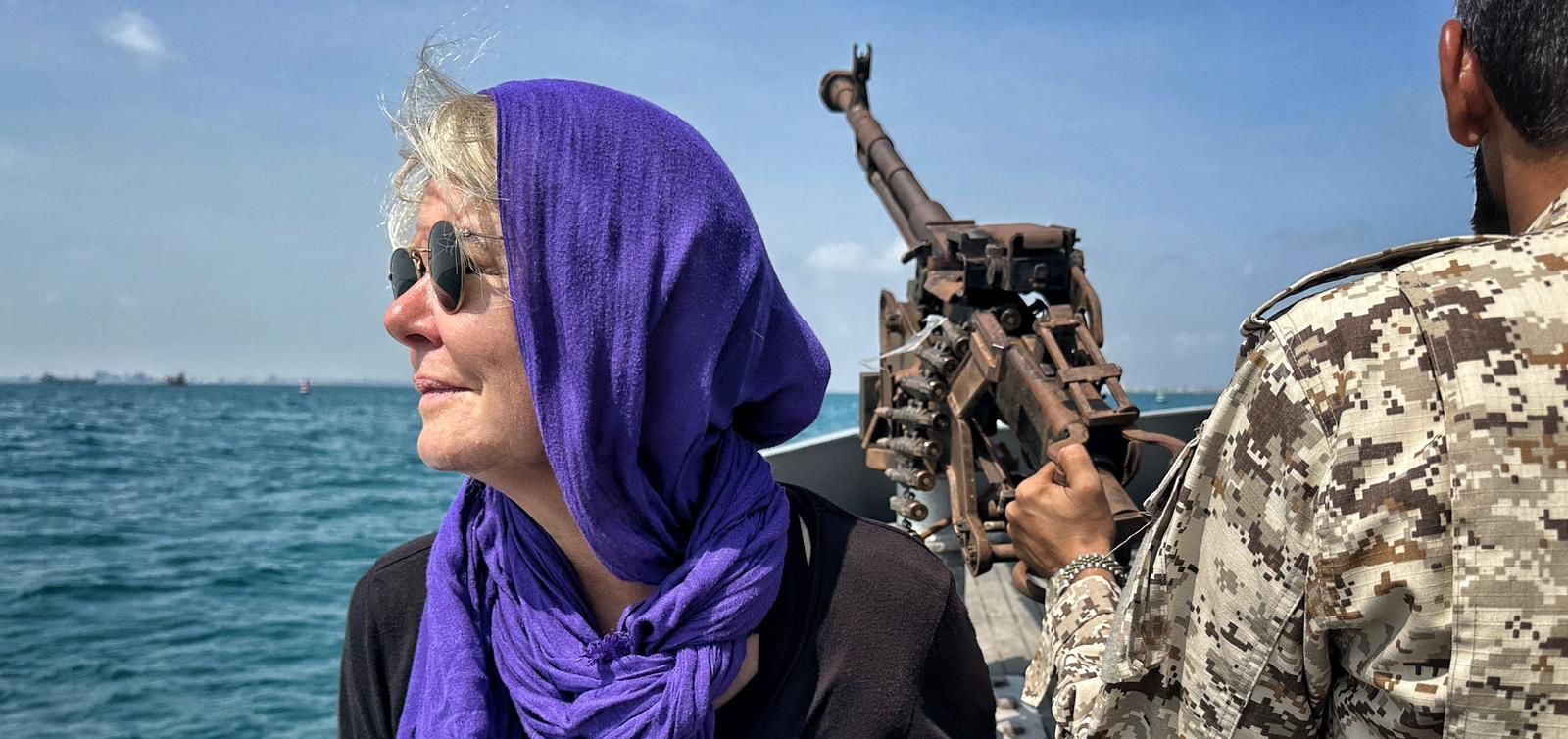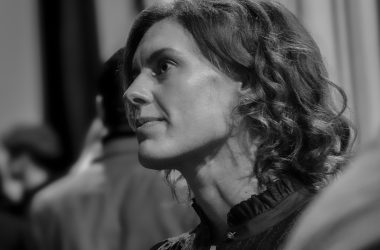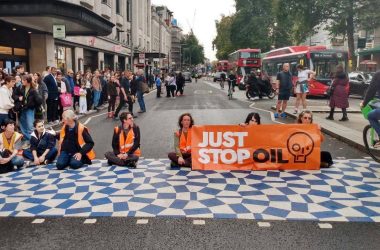Alex Crawford is a British journalist, a special correspondent for Sky News, based in Istanbul. During her 30-year career, she has reported from numerous war and conflict zones around the world, including Libya, Syria and the war in Ukraine. Part of the Sky News team which won the Emmy Award for covering the Ukraine war, Crawford is also the winner of a BAFTA for her coverage of the Ebola outbreak, and five Royal Television Society Journalist of the Year awards.
In this conversation that focused on the life of a frontline journalist, recorded using the secure communication app Signal, Crawford spoke from Yemen, after a full day of reporting. She shared her views on the lack of access to Gaza and her time in Ukraine, where, among others, she interviewed an exhausted President Volodymyr Zelensky in a bunker. She also wondered why anyone would want to do her job, which is, as she put it, “really ugly, very unglamorous” and “nasty and dirty”. Excerpts from the interview, which has been edited for brevity and clarity:
Was there a pivotal moment in your life that led your decision to become a war journalist?
I don’t think I actively decided to become a war journalist. I was quite surprised when people started calling me a war correspondent, because I never actively decided, right, I’m going to be a war reporter and that’s all I’m going to focus on.
I found myself in a position where there were a lot of wars and so most of my reporting and most of my journalistic endeavours were focused on the hostile environments that were all around me. It wasn’t an intentional thing and actually I think it’s a little bit weird if people set off wanting to be a war journalist because there’s so much more to journalism in my view than just covering wars and I would caution against the desire to be in a war because it is not nice, it is really ugly, it’s very unglamorous, it’s nasty and dirty and brutal and it will affect you. There is absolutely no way that you can cover a war properly and not be affected by it.
What is something that you feel that people may wrongly assume about being a war journalist?
That’s a good question because I often ponder why people would want to do it. Do they think it’s glamorous? Do they think it’s good fun? Do they think it’s jolly running around in a flat jacket, which is covered in blood. I honestly don’t know what would attract people to do that job.
I think what journalists should be thinking about doing is that: Do I want to prove a lie? Yes. Do I want to uncover an untruth? Absolutely. Do I want to find the evidence which nails that lie? Absolutely. Those are good ambitions to have as a journalist, and that can be in a conflict zone, we’re seeing this now playing out in our screens on a daily, hourly basis, seeing what’s going on in Gaza, and loads of others.
Unfortunately, we can’t access Gaza ourselves right now, but Myanmar or Ukraine or any number of conflict and war zones to be able as a journalist to go to those areas and really gather the evidence, talk to the eyewitnesses, talk to the survivors and then come back with evidence and reports of what you actually saw.
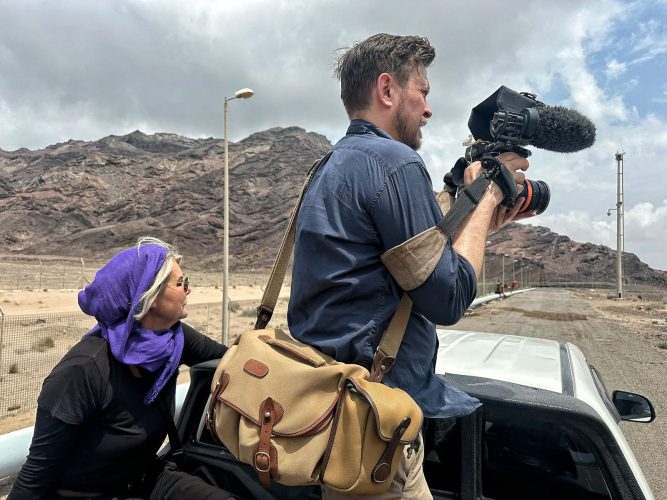
You’ve mentioned Gaza and you have previously voiced your opinions about foreign journalists being denied access to Gaza. Why do you think that that is?
I don’t know the exact reasons behind why the Israelis would not want people to be there because they haven’t said it. In fact, they’ve said the opposite, that they aren’t restricting access when we know for an absolute fact they are, but you can only surmise why they they’ve taken a few very select journalists on a few very small extremely excessively monitored short trips inside Gaza. Why did they take them on those trips?
Why aren’t they letting reporters and journalists go in and have unfettered access from outside of Gaza to one of the most hotly contested events that are rolling out in front of our television screens all the time right now? Why aren’t they letting us in? Why? Why? The only possible, rational conclusion that you can reach is that they don’t want us to see certain things.
Their explanation as to why they’re not letting foreign journalists in don’t match any other war zone that I’ve ever covered. Their reasons are that it’s too dangerous. Well, every war is dangerous. You can get killed going on the way to the front line and being miles away from the front line from a rogue bit of shrapnel or anything. So that that to me is not a reason and also, it’s not a decision that they should take- It’s not up to them to decide what is too dangerous for a journalist, it’s not up to anyone to decide that.
If you want a free media and you believe in media freedom, you can’t put caveats into it. It’s either free or it’s not. It’s either independent or it’s not. In the coverage of Gaza, it is utterly completely controlled by Israel. They decide who has access, and right now, no one has access.
If things change, would you be willing to go there? Would you want to go there?
Absolutely 100 per cent I’d be willing, and I want to go there. And I’m not at all alone. There are so many things going on there that we suspect, we see, we can hear the evidence of their own ministers saying various things, their own Instagram accounts and TikTok accounts were seeing various things, our own Palestinian camera crews are gathering evidence on the ground, but it is not the same as it used to be.
Unfortunately, the last five or six months has been spent undermining every single Palestinian journalist in there. Calling them Hamas supporters, saying that they’re complicit in just by being at an event, they’re therefore Hamas members that they’re somehow coerced, that they’re not independent. Many of them have been doing an extraordinarily brave and courageous job for five, six months that without any support or help from outside or any relief under the most extraordinarily dangerous circumstances, and often with nowhere to live and nothing to eat or drink.
It’s gone way beyond the time that we’re being blocked from going in. It’s not a free field for journalism and the media. And people should know that. So yes, despite all the dangers. I think you’d find a rush of foreign journalists wanting to get in there as the doors opened.
You’ve done work in Ukraine with Sky News. Would you mind sharing what it was like reporting there?
There’s lots of memories. I guess one of the most vivid ones was right at the beginning when our Sky crew had been shot at and they were being flown out and evacuated because one of them was wounded. And the editor decided to pull out all the Sky team apart from my team and send our team into Kiev, which at that time the fear was that it would be encircled, and the Russians were heading towards Kiev, and about to take it over.
We had no idea how long we’d be there for. So, we went in and stocked up on everything from water, stacks of water. We bought a generator because we expected the power to be cut and set up basically a sort of bunker that we would go to because we expected the Russians [soldiers] to come in.
Civilians who suddenly took up arms were making Molotov cocktails and building defences and digging sandbanks- it was just extraordinary. It felt like a real memory turning point. We interviewed President Zelensky in his presidential offices, which were sand banked, in dark, loads of soldiers guarding him, him extraordinarily tired and defiant.
It was all very evocative, the stream of people coming out of Irpin over this broken bridge and this sort of temporary walkway that they’d built across, because the road had been bombed to try and slow the advance of the Russians, but, and volunteers were still driving over and trying to rescue people and pulling them out.
But there was a, there was a few [journalists] that got killed and maimed and injured. And it was a very frantic scary time for them and for Ukraine. But also, a good demonstration of collective, defiance and bravery.
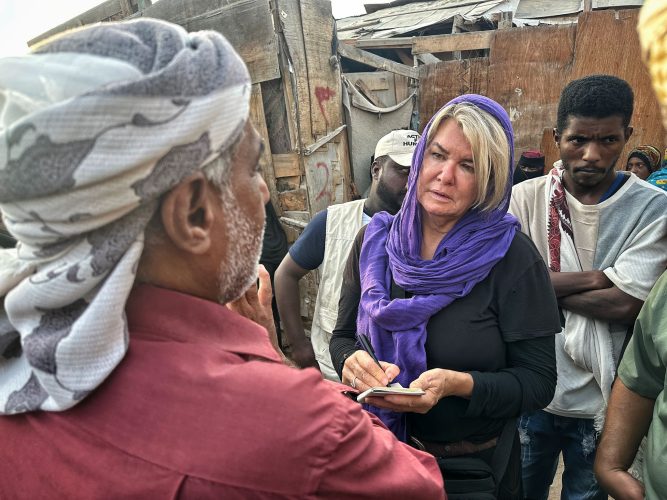
How does it feel being in that type of environment? How do you maintain your composure and your feelings?
You’re feeling a lot of empathy with the people that you’re with, generally. You don’t really have time to be scared. It’s when you’re trapped somewhere that you start to feel fear. Because that feeling of not being able to get out and not having anywhere to run to.
You’ve got to be constantly alert and on alert. But once it becomes crippling and stops you from doing your job, is when you probably need to take a step back. It’s got to be contained, because if you can’t contain the panic, then the fear, the panic takes over. And then it, then you start making bad decisions and wrong decisions and panicky decisions, which can lead to panic attacks and lots of mistakes.
The United Nations High Commissioner for Refugees has said that he’s worried that the war in Ukraine has been forgotten. Why do you think this may be slipping from public consciousness?
I think it’s been eclipsed a little bit by what’s happening in Gaza. That’s sort of shifted the focus away from what’s happening in Ukraine.
I also think even with Gaza, the public’s capacity to take in all this death and destruction is quite limited. Obviously, Gaza is very polarising, and the approach of the various international actors is really polarising and that’s affected the coverage. It’s really worn down the public.
I think it’s the public trust in what’s coming out in the reporting about Gaza and the ongoing politics around it. Which has really affected the public interest and the public viewing tolerance of it. Also, it’s very hard to watch such upsetting pictures a lot of the time and Ukraine has suffered because of it.
There’s still bombing but it’s not moving. The front lines are pretty static, so I think the public’s interest is waning. They don’t see any movement there. They don’t see any development there and that is a real problem for Ukraine to keep up the support, I think.
Have you had to face a situation where your gender has had an impact in conflict zone?
I think gender plays a part in almost everything we cover as, as journalists. Particularly in war and conflict areas, where most of the people who are involved in perpetuating the war tend to be men. It’s still dominated by men. So, all armies and fighters tend to be male. So, when you rock up as a female journalist, it, it creates a very different dynamic. And often that can be to your advantage because you are seen as a lot less threatening compared to a man in many circumstances. At least that’s, that’s how I found it.
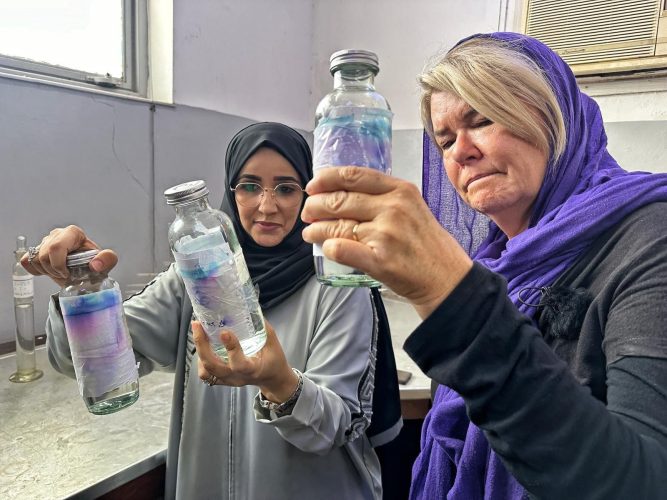
Overall, I would say my experience has been an advantage. You tend to be very underestimated. You tend to be seen as non-threatening. They don’t think you’re capable of being too much of an issue for them.
Out of all the conflict zones that you have been to, what country do you feel is often misrepresented or perhaps underreported in the media?
I would say before October the 7, it was Palestine. Collectively as journalists and as an industry, we should be ashamed of how little we covered it and how we didn’t do it enough justice. I think it seemed to take the world by surprise. October the 7 happened, and it’s had massive catastrophic impact and will have a huge generational impact, I think, on geopolitics and not just what happens in Israel, but the surrounding countries as well.
The Middle East region seems like it’s reported a lot right now, but it isn’t really. There are so many different countries that are involved. I’m in a country at the moment [Yemen] where it’s really underreported anyway and being completely knocked off track. Knocked off the consciousness because everyone’s eyes are now focused on Israel and Gaza, it’s monumentally difficult to get in here, which also often accounts for why wars are underreported. It’s very difficult to get a journalist visa to get in Myanmar so the ongoing atrocities against the Rohingya continue but aren’t reported. Sudan is also difficult because it’s hard to get in there.
I think that’s a challenge as journalists — to try and find a way of covering countries and wars where it isn’t so easy to, to get in or to cover. That’s what our job is all about. It isn’t easy, but that isn’t a reason to give up.





